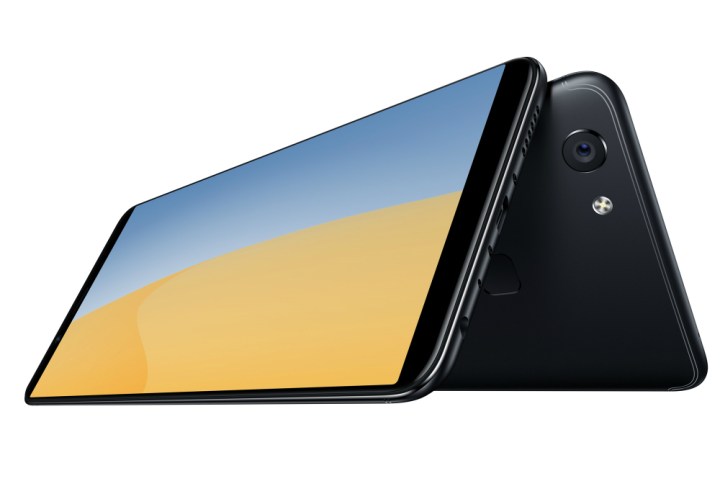
Vivo is a big player in China, and is frequently listed as one of the top five smartphone brands in the world, but its name isn’t as well-known internationally as Xiaomi, or even other Chinese phone brands making waves in Europe like Meizu. The Vivo V7 is its calling card, and its release comes just a short time after Vivo signed a $4 billion technical partnership with Qualcomm, where it will share patents and work on emerging mobile tech, such as 5G, together. Vivo means business, and more international releases are expected in 2018.
Why should we pay attention? Let’s look at the Vivo V7. It’s a sister device to the V7+, and embraces that most fashionable 2017 phone trend, the full screen display. It measures 5.7 inches and takes up 83 percent of the front panel, emphasizing the slim bezels at the top and bottom of the device. The resolution is a disappointing 1440 x 720 pixels, though, which seems very low for a modern smartphone. The Vivo V7+ is slightly larger with a 6-inch screen, but is otherwise identical.
The other big feature is a 24-megapixel selfie camera with a portrait mode, a comprehensive beauty mode, HDR, and a soft light flash. Vivo has long sold its phones on the basis of taking great selfies. It also operates the V7’s face unlock system. The V7’s selfie camera has a higher pixel count than the 16-megapixel rear camera, which can also take portrait-style shots using its single lens.
The V7 has an unnamed Qualcomm Snapdragon octa-core processor with 4GB of RAM, 32GB of memory, and a MicroSD card slot. There is a fingerprint sensor on the back of the phone, which comes in either black or gold colors. Android 7.1 Nougat is the operating system, with Google Play and other Google services, but with Vivo’s own user interface over the top. It’s called Funtouch, and it’s not familiar to us. Expect it to deviate from stock Android considerably though.
Around $300 will secure a Vivo V7 if you use an importer to get one; but beware, it’s not configured for networks in the United States, therefore may not connect to the fastest 4G signal.
Vivo is an interesting company, and has close ties to both Oppo and OnePlus. It has recently shown off a working version of an in-display ultrasonic fingerprint sensor — something Apple and Samsung both failed to integrate into its 2017 phones — with Qualcomm, which combined with the new partnership, highlights why we think it’s potentially one to watch in the future.
Editors' Recommendations
- The Vivo X100 Ultra might be 2024’s new smartphone camera champion
- Vivo’s V23 5G looks quite a lot like the iPhone 13
- Vivo shakes things up with new gimbal-equipped X50 Pro camera phone



